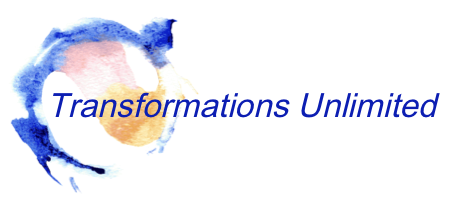THE FLIP SIDE OF DWYL
/Recently we were drawn to a new book titled Do What You Love: And Other Lies About Success and Happiness, in which the author, art historian Miya Tokumitsu, iterates the ways in which the widespread message to “do what you love” (DWYL) actually exploits those it is meant to inspire. When the late Steve Jobs told the 2005 Stanford University graduating class, “You’ve got to find what you love,” for example, he joined Joseph Campbell, Oprah Winfrey and others in suggesting that we must all “follow our bliss.” The problem with that message, according to Tokumitsu, is that DWYL is an “essentially narcissistic schema, facilitating willful ignorance of working conditions of others (and one’s own self) by encouraging continuous self-gratification.” She goes on to say that, “DWYL exposes its adherents to exploitation, justifying unpaid or underpaid work by throwing workers’ motivations back at them; when passion becomes the socially accepted motivation for working, talk of wages or reasonable scheduling becomes crass.”
As the authors of The Transformative Workplace, in which we make the case for creating work “that transforms us as we transform it, where we can grow lives of purpose and passion, where all people may prosper, and where we can contribute to a better and more peaceful world,” and our hope that work of this kind “one day becomes the standard by which we all measure our labor,” we were more than a little challenged by Tokumitsu’s thesis. Upon reflection and conversation, we find much to agree with in the case she makes, at the same time that we would draw a (perhaps subtle) distinction between her case and ours.
At a very deep level, our intended message is not to DWYL, but rather to “love what you do” (LWYD). In the book, we make the case for not only finding work or creating work for others in which we can all grow and develop into the fullness of our humanity, but that we all have the opportunity to become more and more of who we are meant to be in the world through whatever our work might be. Surely the slum women in Mumbai who do embroidery work for Creative Handicrafts and those who sweep the planes between flights at Costa Rica’s Nature Air and those who clean up wool scraps at Norway’s prime knitwear company, Oleana, and others whose stories we tell in the book, are not necessarily following their bliss. What they are doing, however, is taking steps along the pathway from Selfness to Otherness to Wholeness that we lay out in the book. They are engaged in work through which they are taking on the developmental challenges present in all of our lives, and practicing ways of being that lead to human fulfillment: meeting basic needs; challenging assumptions; acting autonomously; appreciating beauty; embodying compassion; and, giving back.
The subtle distinction we are making here is the same one that Steve Jobs may not have realized he was making in his Stanford address when he said both, “You’ve got to find what you love,” and “the only way to do great work is to love what you do.” While we recognize that DWYL is a privilege not currently open to all, the opportunity to LWYD is open to most when done with an open mind and heart and the will to become more fully human. The following from Kahlil Gibran’s On Work says it best.
And what is it to work with love?
It is to weave the cloth with threads drawn from your heart,
even as if your beloved were to wear that cloth.
It is to build a house with affection,
even as if your beloved were to dwell in that house.
It is to sow seeds with tenderness and reap the harvest with joy,
even as if your beloved were to eat the fruit.
It is to charge all things you fashion with a breath of your own spirit,
And to know that all the blessed dead
are standing about you and watching.
There remains, however, a huge caveat to both DWYL and LWYD. If you find that, in your present circumstances, you are unable to do what you love and/or love what you do, or, indeed, if you are suffering at work, then you must find a way to prepare to leave. As Gibran concludes:
Work is love made visible.
And if you cannot work with love but only with distaste, it is better that you should leave your work and sit at the gate of the temple and take alms of those who work with joy.
For if you bake bread with indifference, you bake a bitter bread that feeds but half man's hunger.
And if you grudge the crushing of the grapes, your grudge distils a poison in the wine.
And if you sing though as angels, and love not the singing, you muffle man's ears to the voices of the day and the voices of the night.
Read an interview with Miya Tokumitsu at http://www.theatlantic.com/business/archive/2015/08/do-what-you-love-work-myth-culture/399599/#disqus_thread
Learn more about our book at www.transformativeworkplace.com
Read Kahlil Gibran’s On Work in full at www.katsandogz.com/onwork.html
And leave or send us a comment to tell us what you think (carole@transformunltd.com)

